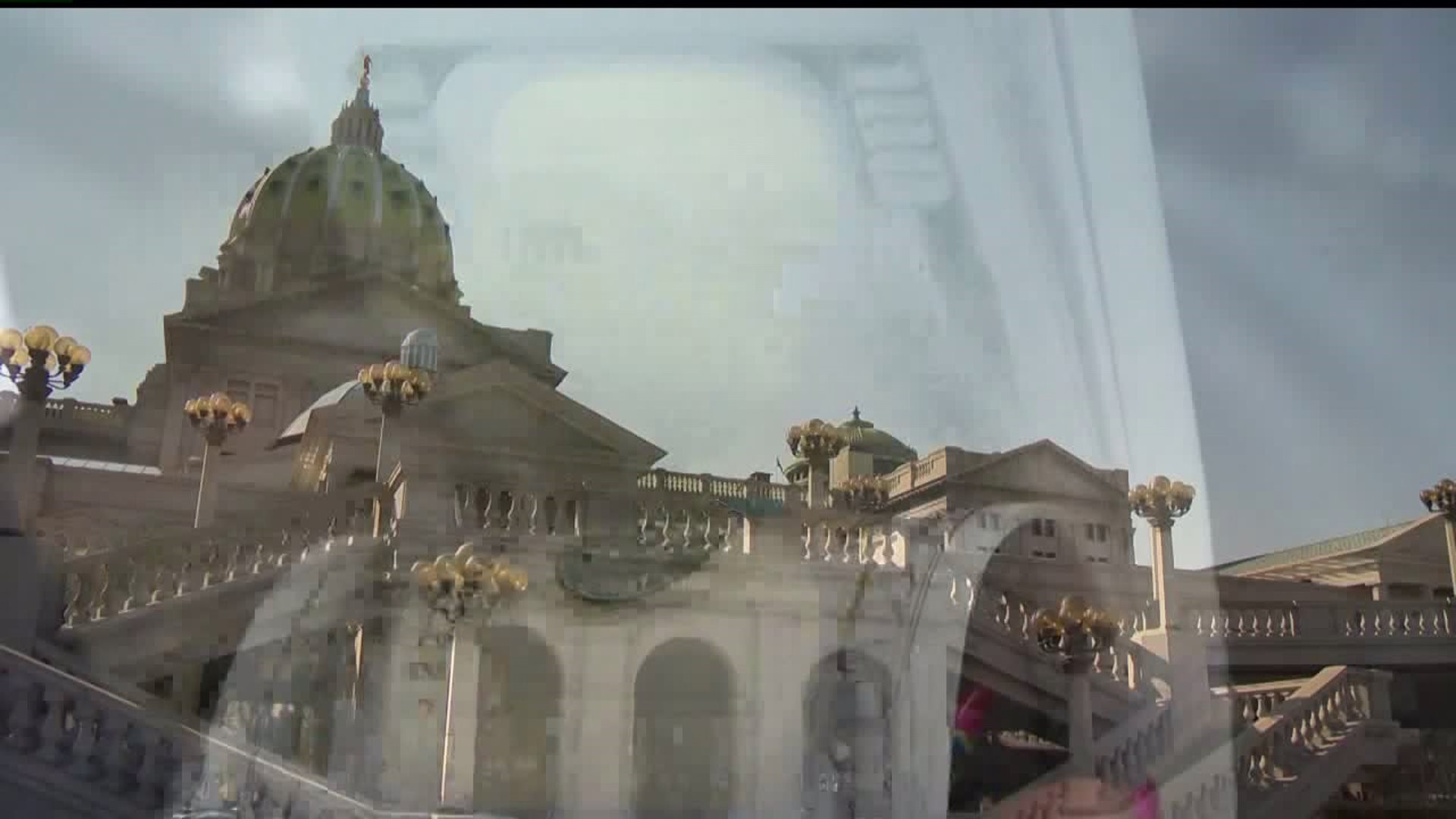HARRISBURG, Pa. -- With a day left in the 2016-17 fiscal year, Governor Tom Wolf and leaders from both the House and Senate appear to have agreed upon a $31.9 billion spending plan for the upcoming state budget.
The spend number is an even compromise for the Democrat governor and the Republican-controlled legislature. The House Republicans' initial spend plan passed in April was $31.5 billion, while Wolf proposed a $32.3 billion budget in February.
As of Thursday, Wolf gave no indications any deal was finalized.
"I'm in negotiations right now," he said at a signing for an unrelated bill. "I'm for a balanced budget, with a focus on education, and streamlined efficient government."
According to Senate leadership, the agreed-upon budget includes the governor's request for $100 million in additional money for education, as well as the $10 million in additional funds Wolf asked to go towards fighting the state's drug and opioid epidemic.
State Senators are expected to approve the spending plan in a late Thursday night appropriations committee meeting. The full Senate will then vote, and again, is expected to approve, the bill when session reconvenes Friday. It will then get sent back to the House, which will have to approve the amended budget plan before it heads to the governor.
"There will be a general appropriations budget bill on the governor's desk (Friday) evening," said Senate Democratic leader Jay Costa.
The question then remains, how will the state pay for it?
Projected revenues did not come to fruition last year, and Pennsylvania is in the red around $1.5 billion. In an effort to make up the difference, House Republicans passed a historic gambling expansion bill, which would add video slot machines to establishments across the state, including airports, bars, taverns, and other special clubs.
Rep. Mark Mustio (R-Allegheny) told FOX43 earlier in the week the VGT-based gaming expansion could net $300 million in new, non-taxed revenue. However, the majority of Senators aren't keen on the idea of relying on so-called "sin taxes" to balance a budget. Many are, however, in favor of a limited gaming expansion, including internet-based casino games and online lottery games.
Gov. Wolf did not ask for any broad based tax increases in his budget proposal. He did, however, ask for an increase on the state's minimum wage, as well as a severance tax on fracking. Neither, according to Sen. Costa, has gained any traction.
"I think it may be appropriate in those instances at this point to do a one-time borrowing," Costa said.
Borrowing money to balance the state's budget is not something Wolf and the legislature have needed to do in his first two spending plans.
Barry Shutt, a Capitol activist who has become known by the governor and state lawmakers alike for his passion in addressing the state's rising pension debt, believes borrowing money is akin to kicking a can down a road. It forces the mistakes of this legislature, he says, on future taxpayers.
"It's shameful," Shutt said. "We're just going to borrow money so we don't have to be responsible in the current year? Whats going to happen next year? We're going to borrow more money?"
Jennifer Kocher, a spokesperson for Senate Majority Leader Jake Corman (R-Centre) said as of Thursday afternoon, no revenue options had been taken off the table. Borrowing money, however, had been brought up as a possibility to balance the budget.
"It's not that we'd be paying for larger government but rather revenue shortfalls of the previous year," she said.

